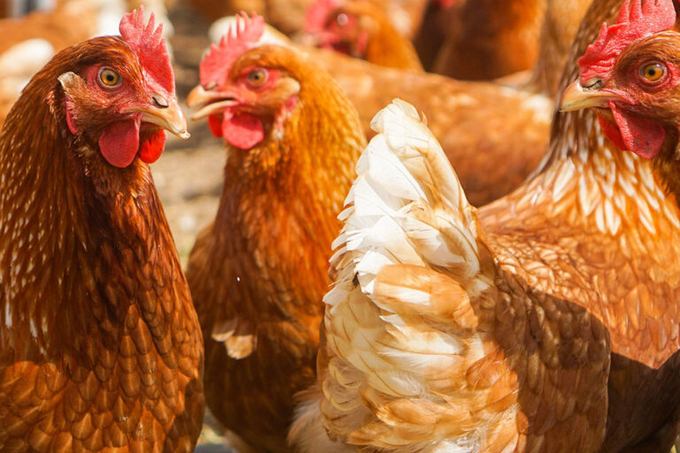November 27, 2025 | 22:24 GMT +7
November 27, 2025 | 22:24 GMT +7
Hotline: 0913.378.918
November 27, 2025 | 22:24 GMT +7
Hotline: 0913.378.918

Chris Harrison's family farm in North Yorkshire run 820 acres of arable land and 64,000 free-range layers. Photo: Canva
Harrison, who is a partner in his family farm in North Yorkshire, helps run 820 acres of arable land and 64,000 free-range layers and feels that running the businesses alongside each other has allowed them to build towards a circular economy on farm.
Chicken litter is used to help fertilise the arable crop, supplying all the necessary phosphorus. This removes the need for additional potash and phosphate and reduces nitrogen requirements. The family also mill their own feed, with the arable business providing the wheat and barley, meaning that around 70% of the poultry feed is grown on farm.
He feels one of the benefits of milling his own feed has been the increased level of control it has given him. He has been able to trial mixes that might not traditionally be available on a large scale, and a result has been able to optimise the feed mix and reduce feed consumption by approximately 10g per bird per day. As a result, average feed consumption over their last 2 flocks has decreased to 114g per bird per day.
The farm has also reduced the amount of soya in the diet by 30% since they started milling 6 years ago, and they hope to start growing beans in the future, which would provide additional protein for the feed and further reduce their reliance on soya.
But it’s not just feed and fertiliser regimes that are being changed on the farm. Harrison has also invested in renewable energy, installing 2 x 100kW wind turbines and 250kW of roof-mounted solar panels. Although planning permission has not been easy for the turbines and they had to negotiate to obtain a grid connection to be able to install the solar panels, the energy security provided is proving invaluable.
The on-farm renewables now provide 65-70% of their energy requirements, helping shield them from the energy market volatility caused by current global events. Selling excess energy back to the grid has also provided a useful alternative and extra income. The farm can now produce up to 130% of the farms energy requirements and they are keen to use battery storage to better utilise their future renewables.
Harrison says the changes made have built business resilience, maintained profit margins and reduced their carbon footprint. His advice to other farmers is clear: “Surround yourself with the right people. With so much information out there, it can be difficult to find clarity amongst the noise. It’s so important to find someone who not only has the knowledge, but also someone you can work with.”
His comments come at a time when experts are warning of the risk of civil unrest in the UK due to food shortages. Researchers at the University of York and Anglia Ruskin University say a shortage of popular carbohydrates, such as wheat, bread and pasta and cereal, are most likely to trigger civil unrest, following a survey of the country’s leading food experts.
Published in the journal Sustainability, the study found that just over 40% of the food experts surveyed believed that civil unrest in the UK in the next 10 years was either possible or more likely than not, increasing to 80% over the next 50 years. The UK is currently 50% self-sufficient on food.
Professor Sarah Bridle, chair of Food, Climate and Society at the University of York, said the food systems faces significant challenges: “We are experiencing an increasing number of extreme weather events, mainly driven by climate change. It is entirely possible that in the coming decades extreme weather will cause major crop yield failures across multiple breadbaskets. We need a food system designed not just for optimal efficiency but also for resilience.”
(PW)

(VAN) A new study reveals how the simultaneous effects of ocean acidification, salinity and loss of oxygen are making the world more fragile.

(VAN) Hopes are growing that the creation of the first 3D turkey gut model could be a turning point in the battle against the virulent blackhead disease.

(VAN) Tyson, America’s biggest meat supplier, plans to shutter one of its largest beef processing plants as the industry continues to struggle with low cattle supplies and political pressure from Washington.

(VAN) New FAO study shows how digital solutions are empowering farmers and fishers to prevent losses and build resilient agrifood systems.

(VAN) Brazil's COP30 presidency pushed through a compromise climate deal on Saturday that would boost finance for poor nations coping with global warming but that omitted any mention of the fossil fuels driving it.

(VAN) Poultry farmers in the UK have been warned that they could face one of the worst winters yet for bird flu.

(VAN) Prices of main-crop paddy have risen sharply, with jasmine rice hitting 16,100 baht per tonne — the highest level in years.